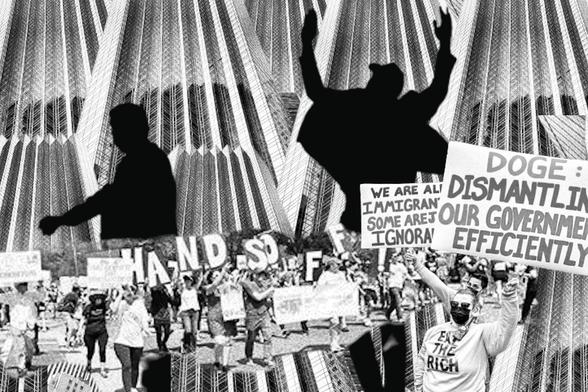Just out: 'Resisting the Techno-Fascist Takeover: Are We Ready for Decomputing?' https://berlinergazette.de/resisting-the-techno-fascist-takeover-are-we-ready-for-decomputing/ in which I diagnose DOGE as institutional cyberattack and argue that the way to stop it spreading is to revive an alternative technopolitics.
"It’s hard to know how much the DOGE boys buy into the ‘AI is nearly AGI’ line and it doesn’t matter. They already know the woke leviathan must be destroyed and that AI is the way to go in hard, while throwing up a smokescreen that systems are being upgraded rather than trashed".
[2/n]

